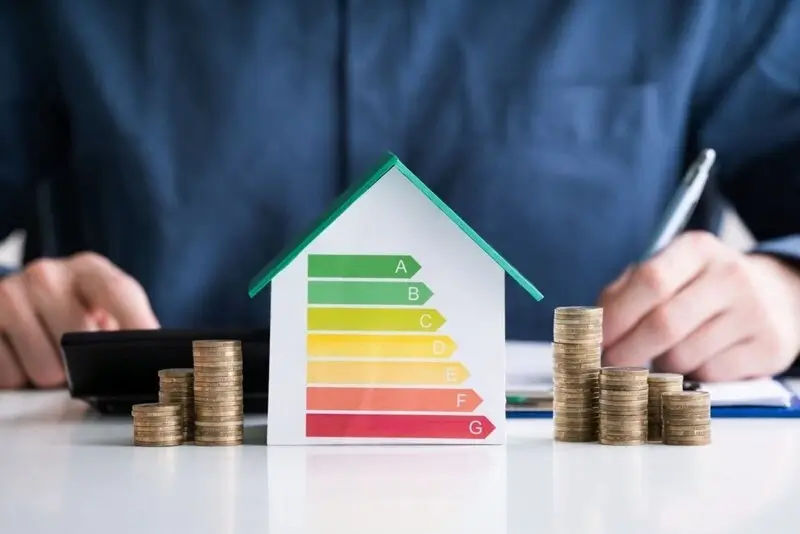Understanding EPC Pricing in the UK
Understanding EPC Pricing in the UK If you’re selling, letting, or developing a property in the UK, you’ll need a valid Energy Performance Certificate (EPC). In 2025, EPCs remain a legal requirement for most residential and commercial properties — and while the process is straightforward, pricing can vary depending on several key factors.
This guide outlines what you can expect to pay, what influences the cost, and why using a qualified local assessor is often the most efficient route.

How EPC Pricing Works
EPC pricing isn’t fixed by the government. While all assessments must be carried out by accredited professionals, each assessor sets their own rates. The final cost depends on the property’s size, type, layout, location, and how much time is required to complete the inspection.
There’s no single national rate — but across the UK, clear pricing patterns have emerged based on demand and building types.
Typical EPC Costs in 2025
Residential Properties
For a standard home, EPC prices typically range from £55 to £95. Smaller properties such as flats or one-bedroom houses tend to be at the lower end of this scale. Larger or more complex homes, such as multi-storey or extended properties, usually fall at the higher end due to the additional time needed for inspection.
This pricing range has remained relatively stable over the past few years, with only small changes influenced by inflation and operating costs.y stable over the past few years, with only small changes influenced by inflation and operating costs.
Commercial Properties
Non-domestic EPCs are more detailed and often cost more due to the extra data collection and calculation involved. Learn more about the differences. Pricing varies depending on size, systems, and building use:
- Small commercial units (e.g. shops, salons, small offices): £120–£300
- Medium-sized buildings (multi-room or multi-floor): £300–£600
- Large or complex premises (warehouses, hotels, industrial sites): £1,000+
What Affects EPC Pricing?
Property size is one of the biggest factors. A one-bedroom flat may take just 30 minutes to assess, while a large detached house or multi-floor office block could require more than an hour on site.
The building’s layout and features also matter. Standard construction tends to be straightforward. But older buildings, complex layouts, or mixed-use premises may involve more in-depth inspection and data entry.
Location can impact cost as well. In high-demand areas, fees may be slightly higher due to scheduling pressure, congestion, or local overheads. In rural areas, travel time may be factored into the assessor’s rate.
Assessment turnaround time makes a difference too. While most assessors offer 24–72 hour delivery, faster services — such as same-day EPCs — may be priced at a premium.
Optional extras like floorplans, energy-saving advice, or bundled property compliance services can also affect the total fee, though these are only included when requested. If you’ve recently upgraded your property or your current certificate is approaching expiry, know when to renew your EPC.
What’s Included in the EPC Fee?
A valid EPC assessment always includes a mandatory site visit by a qualified and accredited assessor. During this visit, the assessor gathers key information about the property’s insulation, heating systems, glazing, lighting, and construction.
These details are entered into government-approved software, which calculates the energy rating and generates the certificate.
Once completed, the EPC is uploaded to the national register and delivered to you in digital format. Most assessments take 30 to 60 minutes, depending on the size and complexity of the building.
To help the process go smoothly, ensure your assessor has access to all rooms, the boiler, hot water system, and loft area if present.
Why Local Assessors Often Offer Better Value
EPC assessors typically work independently within their local areas. Choosing someone nearby often means faster availability, clearer communication, and pricing that reflects real market rates — not inflated fees from agencies or booking platforms.
Local assessors also tend to be more familiar with regional construction styles, which can help streamline the assessment and improve accuracy.
On our site, each area is supported by qualified professionals offering EPC services tailored to homes and commercial buildings in your location.
Final Thoughts
EPCs are a legal requirement when selling or letting property — and a useful tool for understanding energy performance. In 2025, residential EPCs remain affordable, usually under £100. Commercial EPCs vary more but are priced in proportion to the size and complexity of the premises.
Costs may vary by location, building type, and urgency, but hiring a qualified local assessor is often the most straightforward way to get your certificate issued quickly and accurately.
Need an EPC? Our network of qualified, independent energy assessors handle both domestic and commercial EPCs. Visit the Areas We Cover page to find your local assessor.
